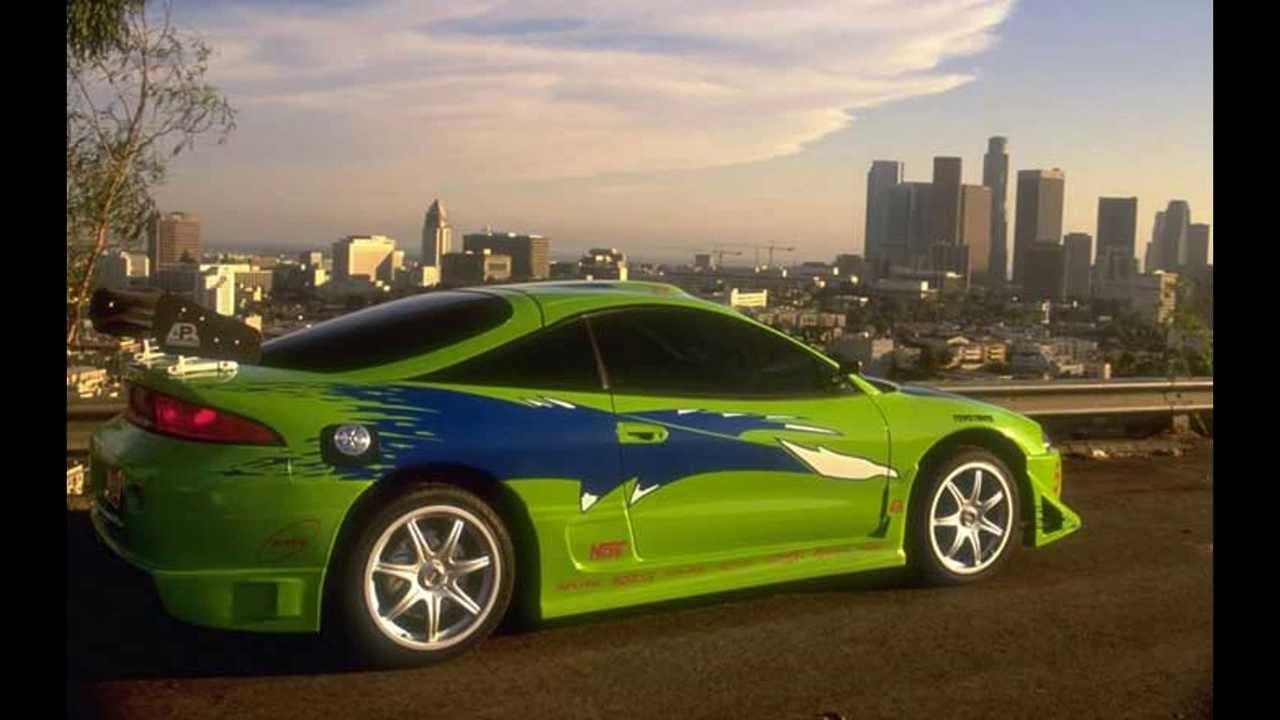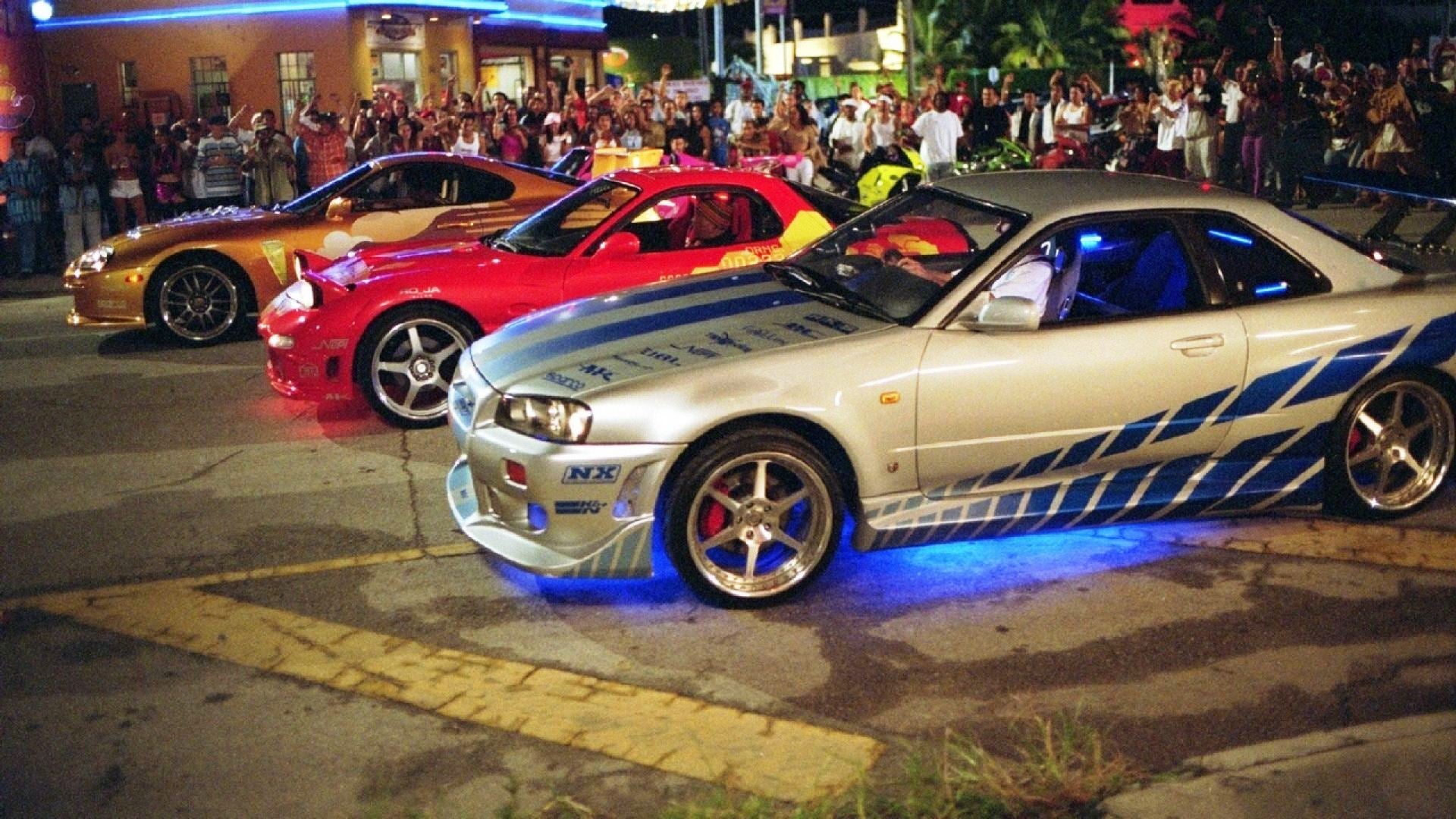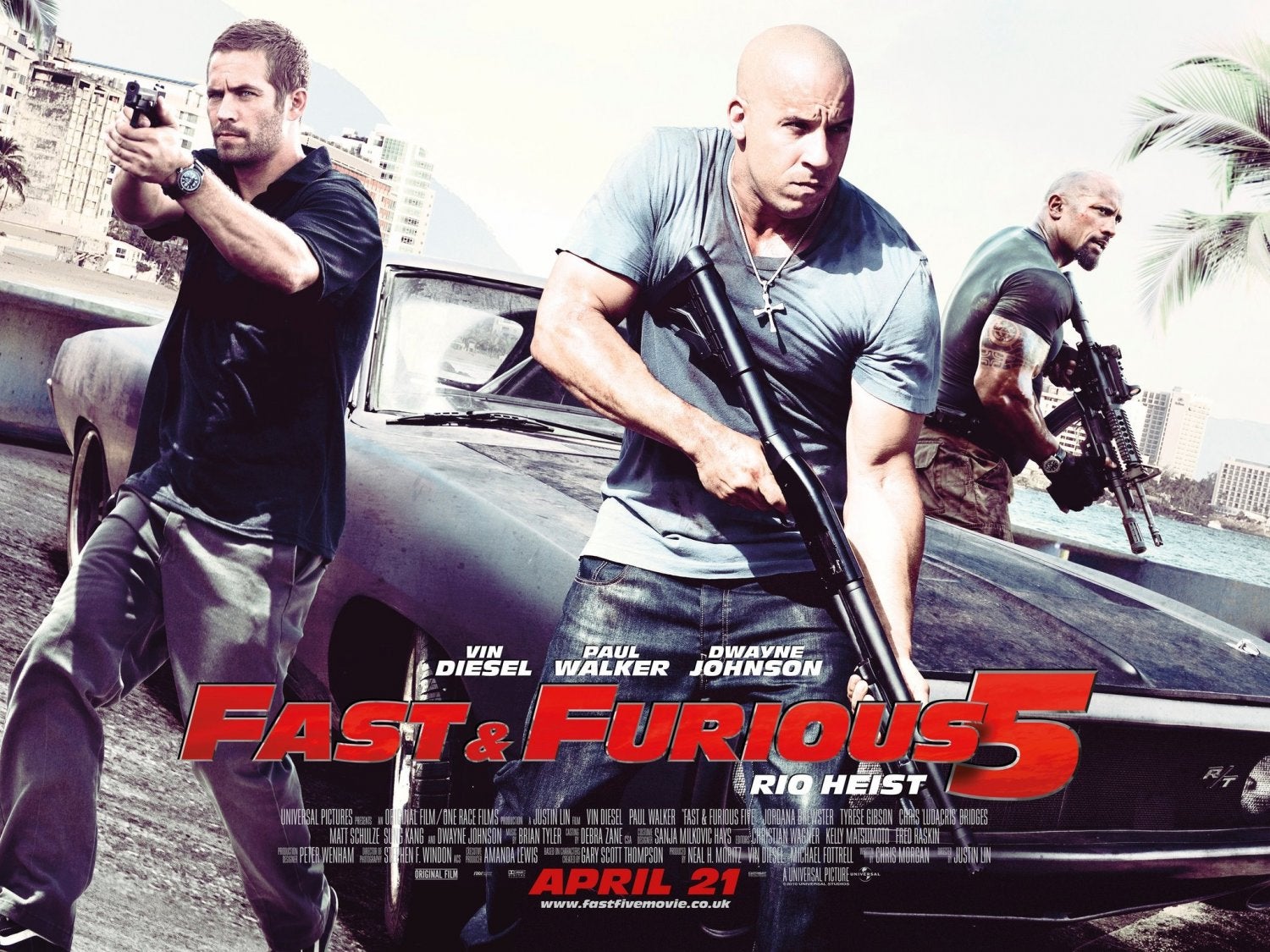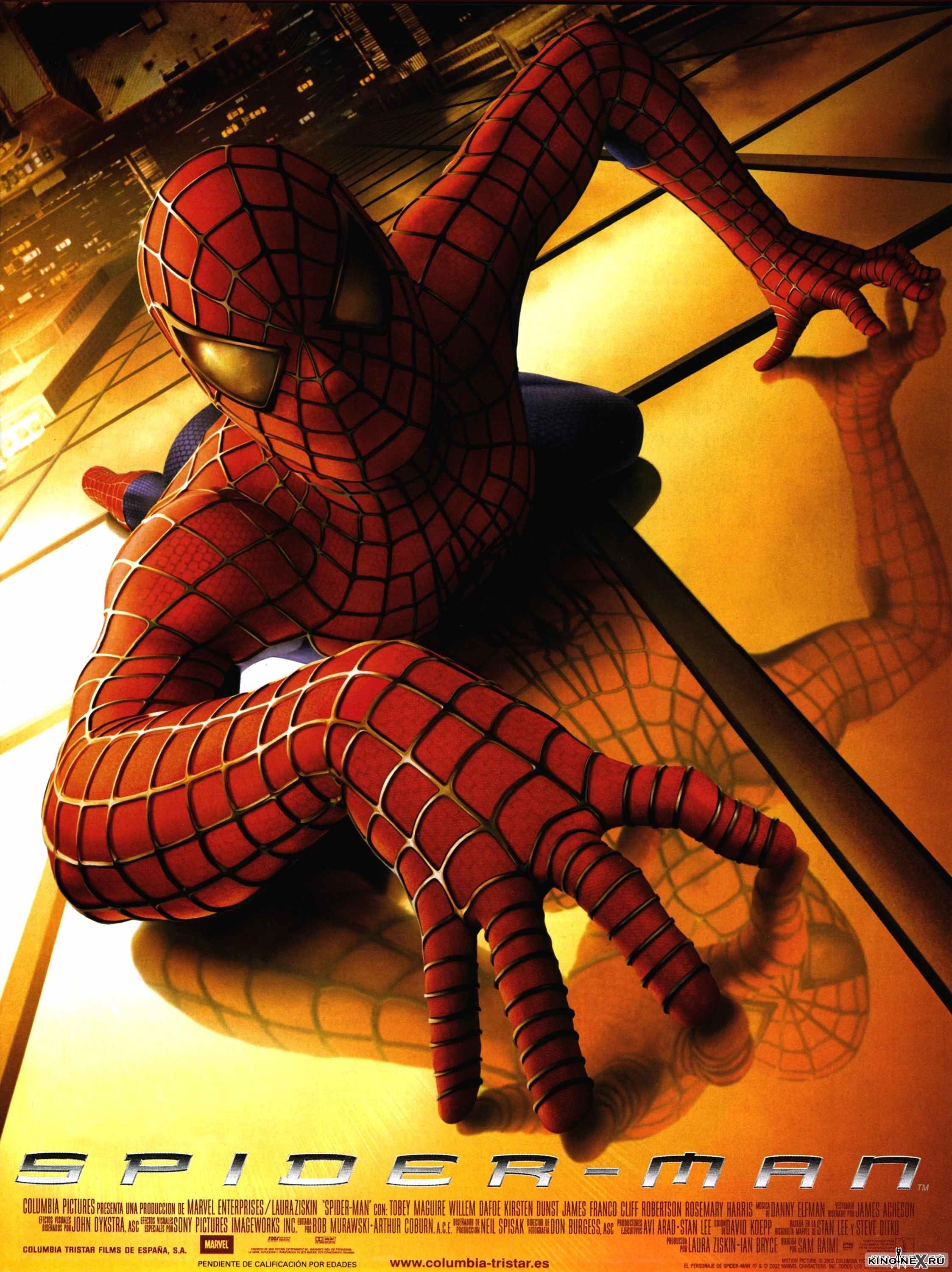 "GhostZ" (GhostZ)
"GhostZ" (GhostZ)
04/03/2015 at 14:12 • Filed to: None
 3
3
 10
10
 "GhostZ" (GhostZ)
"GhostZ" (GhostZ)
04/03/2015 at 14:12 • Filed to: None |  3 3
|  10 10 |

I was reading comments on the front page when I had a realization that there are more people to whom Fast and Furious has always been unrealistic juiced up heist movies, than about underground car culture and its associations with illegal activity. Why is that so?
It's probably the same feeling that fans of the old Batman, Captain America and Hulk TV shows felt when gritty Marvel and DC remakes started coming out.
The first three films all have something distinct from the later, more popular films, and the changeover between them speaks to a larger trend in film altogether. It's called overproduction, and it closely relates to art, realism, and finance.
Overproduction involves spending far more resources than necessary to make a film as lavish and experiential as possible, so that it can be guaranteed a decent box office response. It's been used to the greatest effect by Disney and Marvel in recent years. Instead of saving money to reduce risk, it involves spending more. By not relying on singular directors, writers, and editing crews who have control over how the movie results, the money is instead spent on things that translate more directly to preventing a box office flop, than creating a box office success.
Or, in other words, an unmemorable movie that is guaranteed a decent box office response, is far more safer to produce than a memorable one with flaws.
Let's compare domestic box office values from the movies.
Movie, Budget (Box office)
The Fast and the Furious,
$38m
($144m)
2 Fast 2 Furious
$76m
($127m)
The Fast and the Furious: Tokyo Drift:
$85m
($62m)
Fast and Furious:
$85m
($155m)
Fast Five:
$125m
($209m)
Fast & Furious 6:
$160m
($238m)
Figures pulled from Wikipedia.org and Boxofficemojo.com
Furious 7 isn't yet making much money, but it already has the highest budget of the series at $250m. Yet, it's opening day was only $15.8m (compare to Fast Five's $34m opening day, and the original first movie's $15.2m). So why the hell is Hollywood spending so much money on a movie that may not be more profitable than its predecessors? Even 2 Fast 2 Furious had a better opening night than most of the later films, at $19m.
It has to do with overproduction changing the type of movies Fast and Furious films are.
It's easy to sit back in your cushy office chair sipping your company coffee and slam your face into a keyboard until some semblance of "FAST AND FURIOUS ISN'T ABOUT CARS ANYMORE" vomits out onto your comment box . Then everyone can tell you to stop taking the films so seriously and enjoy them.
It's easy to say that because it's right .
But not for the reasons that the commentariat often think it is.

In The Fast and The Furious, 2 Fast 2 Furious, and Fast and Furious Tokyo Drift, the main protagonist was a street racer . This was a distinct character, with distinct motivations. Paul Walker and Lucas Black's characters were street racers before and above any thing else (in Paul's case, Racer > Cop, in Black's, Racer > Student), which is what the entire first three film's character arc is about: he's a good guy with dangerous hobbies, doing illegal things doesn't make him less moral or heroic, he remains true to his character and aesthetic. The character's motivation was doing his "above world" job, while still street racing when the two were at odds. Paul Walker was trying to catch the bad guys by going undercover, the fact that the street racers he got involved with were also criminals was incidental . He spent more of the movie hunting down others and in the end, showed his true principles.
They drove shitty, heavily modified imported cars because street racers of that era drove shitty, heavily modified imported cars cars. To many, the movies have always been unrealistic . And that's just simply not true. While they were always fiction, there was more reality in the earlier films by far.
This remained mostly true through Fast and Furious, but with a few distinctions. The first of which is that the films focused more on Vin Diesel's character and background, and he was explicitly set up as not a hero.

In Fast Five, Fast and Furious 6, and now Furious 7 (take a minute and appreciate that the naming scheme has changed consistently with each new film) the main protagonist was a criminal . Even when working for the law, their activities are largely criminal in nature with Committing a heist, the character's motivations were their own profit or survival . It's a very, very different type of film. Because it allows for far greater creative freedom.
Remember the core principle of overproduction: Spend more money so there's less risk losing it. What makes movies fail are often singular, consistent problems in them. Bad writing, bad acting, shoddy camera work, bad directing, etc. It's rare that you see a movie that is universally bad, almost all films have some redeeming qualities and fanbases. Movies with objective flaws, but unique and artistic writing, acting, or directing (such as the Rocky Horror Picture Show) often end up cult classics, which the original The Fast and the Furious is quickly becoming.
Or, in simpler terms, Overproduction is removing art from media , and replacing it with profit-driven sensation. This isn't always a bad thing, for the most part it's a very good thing. It means that it's rarer and rarer to see a major movie being released that is bad . Even Iron Man 3, which was a artistic trainwreck, was still an enjoyable movie. You'll always feel like you spent your money wisely, even if hte movie wasn't memorable. And that's why it makes more money. Through overproduction, profitability relies less on innovative fiction, and more on meeting expectations and not 'rocking the boat'.
This is an overarching trend in hollywood films, and I'm sure the more you think about it, the more you're going to start seeing it in other films. Most of you probably already know what I'm talking about. It's a phenomenon not unique to the Fast and Furious series.

Another film, and my favorite example of this, is the Spider-man series. 3 Sam Raimi Spider-Man films were very popular in their time and made a big impact on what was acceptable in a "superhero" film. Overproduced bloated budget AAA films that came later, specifically the Amazing Spider Man one and two, are objectively better films, but are far less memorable. Likewise, they were not nearly as big box office success stories. Spider-Man tripled its budget domestically. The Amazing Spider-Man barely made back at all in it's budget in domestic sales. But was there any doubts that The Amazing Spider-Man wasn't going to make money?
So let's bring it back down to what this means about The Fast and The Furious franchise.
The first few movies of the franchise were far more memorable because they were unique in their aesthetic and intentions . Their characters were more clearly defined by their beliefs and circumstances, not by their jokes or history. Because they had a more complex, complete image of these people, the movies were more realistic in their portrayal of street racing culture. Good art doesn't have to be fantastical, it rarely is.
Just because something looks offensive, kitchy, and cheesy does not make it boring art. It makes it less consumable art, which is about the polar opposite of boring.
Movies like Tokyo Drift explained why people do what they do rather than just showing entertainment. It may not be the best form of media, but it's far and away better art. It makes it memorable, and at times, beautiful .
So as you shuffle off to the theaters this weekend, remember this. Yes, the new movies are not about cars.
But the first movie was. It was inspired by a true story. Google that, I'll sit and wait.
Found it? Good. Read it. Oh yes, do you get it now?
The Fast and the Furious is cheesy and dated because that's what the art was trying to convey . It makes you think because that reality makes you understand, in more complexity than the later movies ever did, what many of those racers did in real life.
So enjoy Furious 7, but before you jump to the comments shouting down criticism with "OH DON'T TAKE IT SO SERIOUSLY IT'S JUST FICTION", wipe the phlegm from your keyboard and try to distinguish Fast 4, from Fast 5, 6, or 7. consider how many of the memes you're posting are from the first movie, and then think about which of the two movies you're going to want to torrent download stream for free via netflix in 5 years time.
 KyleA
> GhostZ
KyleA
> GhostZ
04/03/2015 at 14:29 |
|
3rd clip is one of the reasons why the 3rd movie is my favorite
 GhostZ
> KyleA
GhostZ
> KyleA
04/03/2015 at 14:35 |
|
Those 3 minutes redeem most of the rest of the film. It really was one of the most solid stories, it was just the terrible acting and pacing that ruined it.
 B/Xmrrmvr
> GhostZ
B/Xmrrmvr
> GhostZ
04/03/2015 at 14:44 |
|
I was reading comments on the front page when I had a realization that there are more people to whom Fast and Furious has always been unrealistic juiced up heist movies, than about underground car culture and its associations with illegal activity. Why is that so?
Because the plot of FnF was taken from the movie 'Point Break', a movie about a cop going undercover to bust a gang of robbers/thieves who also happen to be adrenaline junkies. FnF just uses street racing instead.
 HFV has no HFV. But somehow has 2 motorcycles
> GhostZ
HFV has no HFV. But somehow has 2 motorcycles
> GhostZ
04/03/2015 at 15:01 |
|
TL:DR a movie about street racing, and car culture doesn't appeal to as large of a demographic.
 GhostZ
> HFV has no HFV. But somehow has 2 motorcycles
GhostZ
> HFV has no HFV. But somehow has 2 motorcycles
04/03/2015 at 15:04 |
|
That isn't at all what this article was about. If anything, this article shows that a movie about street racing and car culture is potentially more profitable .
 HFV has no HFV. But somehow has 2 motorcycles
> GhostZ
HFV has no HFV. But somehow has 2 motorcycles
> GhostZ
04/03/2015 at 15:10 |
|
I guess I'll have to actually read instead of skimming. sorry.
 GhostZ
> HFV has no HFV. But somehow has 2 motorcycles
GhostZ
> HFV has no HFV. But somehow has 2 motorcycles
04/03/2015 at 15:16 |
|
TL;DR: Fast and Furious is victim to Overproduction, the same thing that's happening to a lot of movies, and that makes later movies more entertaining but less memorable.
 HFV has no HFV. But somehow has 2 motorcycles
> GhostZ
HFV has no HFV. But somehow has 2 motorcycles
> GhostZ
04/03/2015 at 16:23 |
|
and now I want to watch 2 fast 2 fourious.
 John Norris (AngryDrifter)
> B/Xmrrmvr
John Norris (AngryDrifter)
> B/Xmrrmvr
04/19/2015 at 13:22 |
|
‘Point Break’
Never connected that before; astute observation. Same bad acting too.
 John Norris (AngryDrifter)
> GhostZ
John Norris (AngryDrifter)
> GhostZ
04/19/2015 at 13:38 |
|
Okay, I read your post and I still want to say “OH DON’T TAKE IT SO SERIOUSLY IT’S JUST FICTION”. Fiction can be great or terrible or somewhere in between. I haven’t seen Furious 7 yet, but I look forward to it. I’ve enjoyed the whole mix of American muscle cars and JDM and whatever else.
I am ready for a new car associated franchise though. Perhaps the passing of Paul Walker will enable that. If you are in the film industry, perhaps this is your window of opportunity.